Inside the ‘Church’ Devoted to Argentina’s Favourite Soccer Player
A version of this article originally appeared on VICE en Español.
Diego Armando Maradona is widely regarded as the best soccer player of all time, but for many people, he’s a god. Not a prophet or the reincarnation of some ancient soccer deity, but D10S (a play on the Spanish word dios for “God” that incorporates Maradona’s jersey number). The amazing thing about Maradona—the thing that no other soccer player has—is the passion shared among his fans. The emotional dedication is as beautiful as it is crazed.
Maradona—as much as he talks about himself in the third person—never asked to be deified. But soccer is perhaps the religion with the greatest number of adherents in the world. And if soccer is its own religion, then Maradona is its god. Joining and worshipping is simple. And for many, it can be as easy as clicking “like” on a Facebook page.
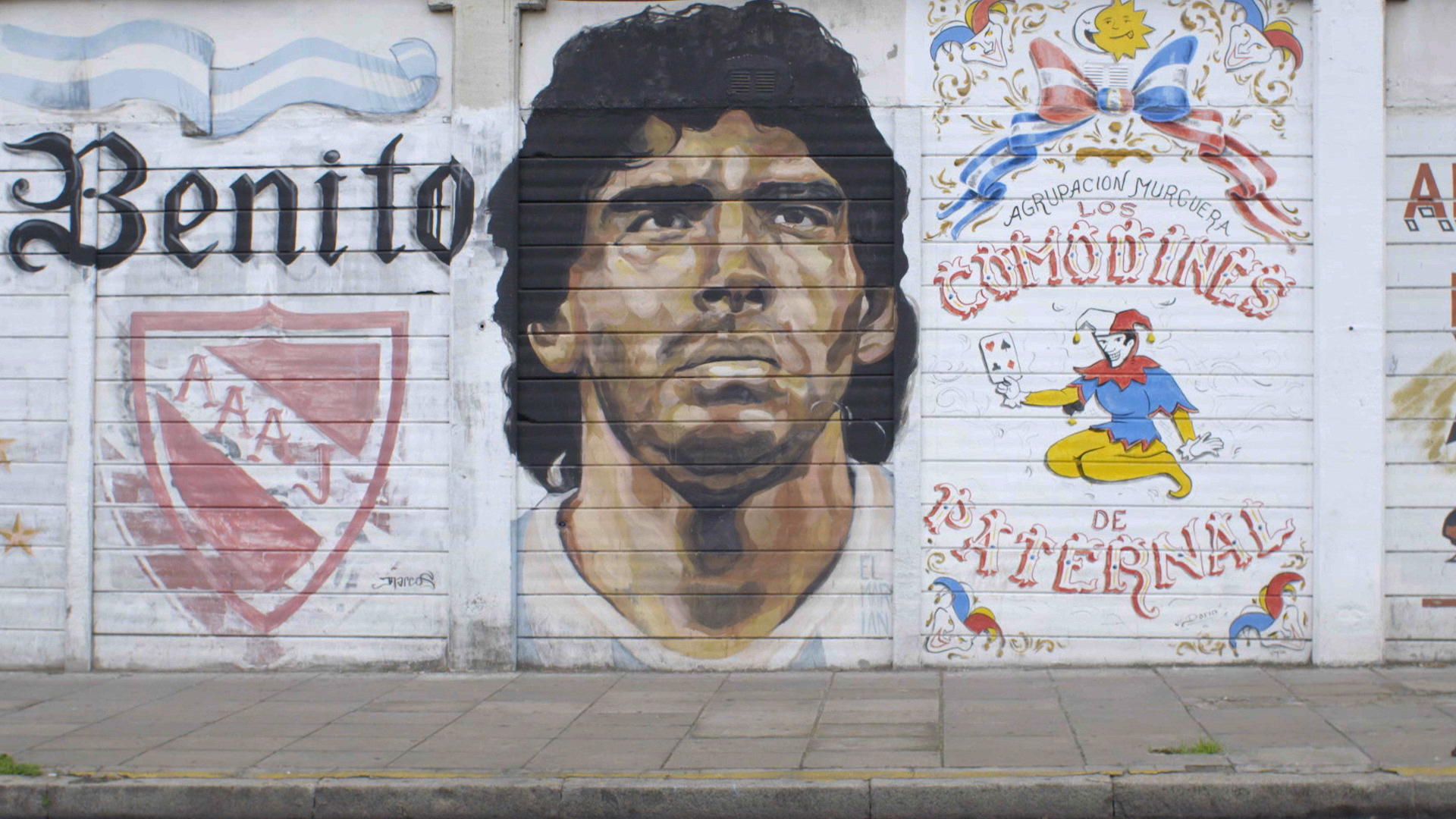
I first heard the call to the Maradonian faith more than two World Cups ago. There was no revelation to it; no missionary who came knocking on my door with a pamphlet under his arm; no moment where I was overtaken on the street by rabid fans. The word of Maradona touched me by a tongue of virtual fire: an invite to a Facebook group that called on me to join the “Church of Maradona.”
“This is a temple that unites hundreds of thousands of Maradona fans around the world,” its About section reads. “Our religion is soccer and, as with all religions, one has to have a God.”
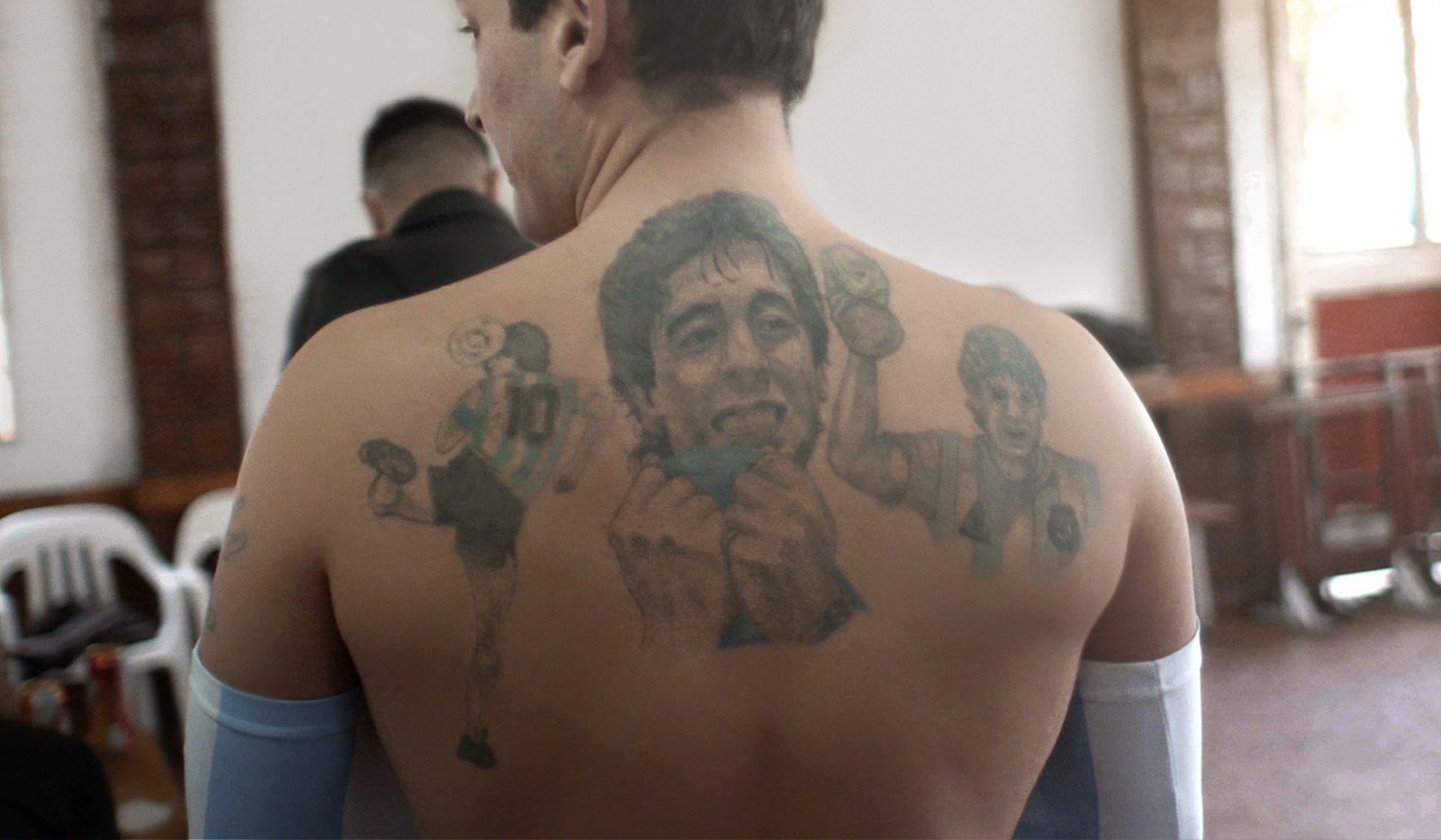
Founded by Alejandro Verón and Hernan Amez, two journalists who host a radio talk show about soccer, the Church of Maradona operates primarily through the internet and uses religious language to express a deep devotion to the Argentinian sportsman. On the church’s Facebook page, members repeatedly share the soccer player’s memorable quotes, photos, memories, and videos of his best goals and plays. Practitioners possess an unconditional love for the man regardless of what he does off the field, because they believe the miracle he performed on it was so godlike that no mere mortal has the right to judge him.
In real life, though, Verón and Amez work to organize meetups at various venues in Rosario, Argentina, where apostles congregate for “mass.” Their religion even has its own scripture and Ten Commandments, including “Spread the news of Diego’s miracles throughout the universe” and “Love football above all else.”
Today, on a brisk Saturday in Rosario the mass is being held at a local athletic club. The smell of charcoal and sausages splitting open on the grill fills the air, and with me are 20 or so men sporting Argentina soccer jerseys or related team gear. Their ages range from 15 to 70 years old, and—with the exception of their shared passion for and tattoos of Maradona—they have little in common. There’s only a handful of women here, seated around a table at the opposite end of the room. They play cards and occasionally cast an apathetic glance in our direction, as if they’re well-acquainted with this particular religion and all the quirks it entails.
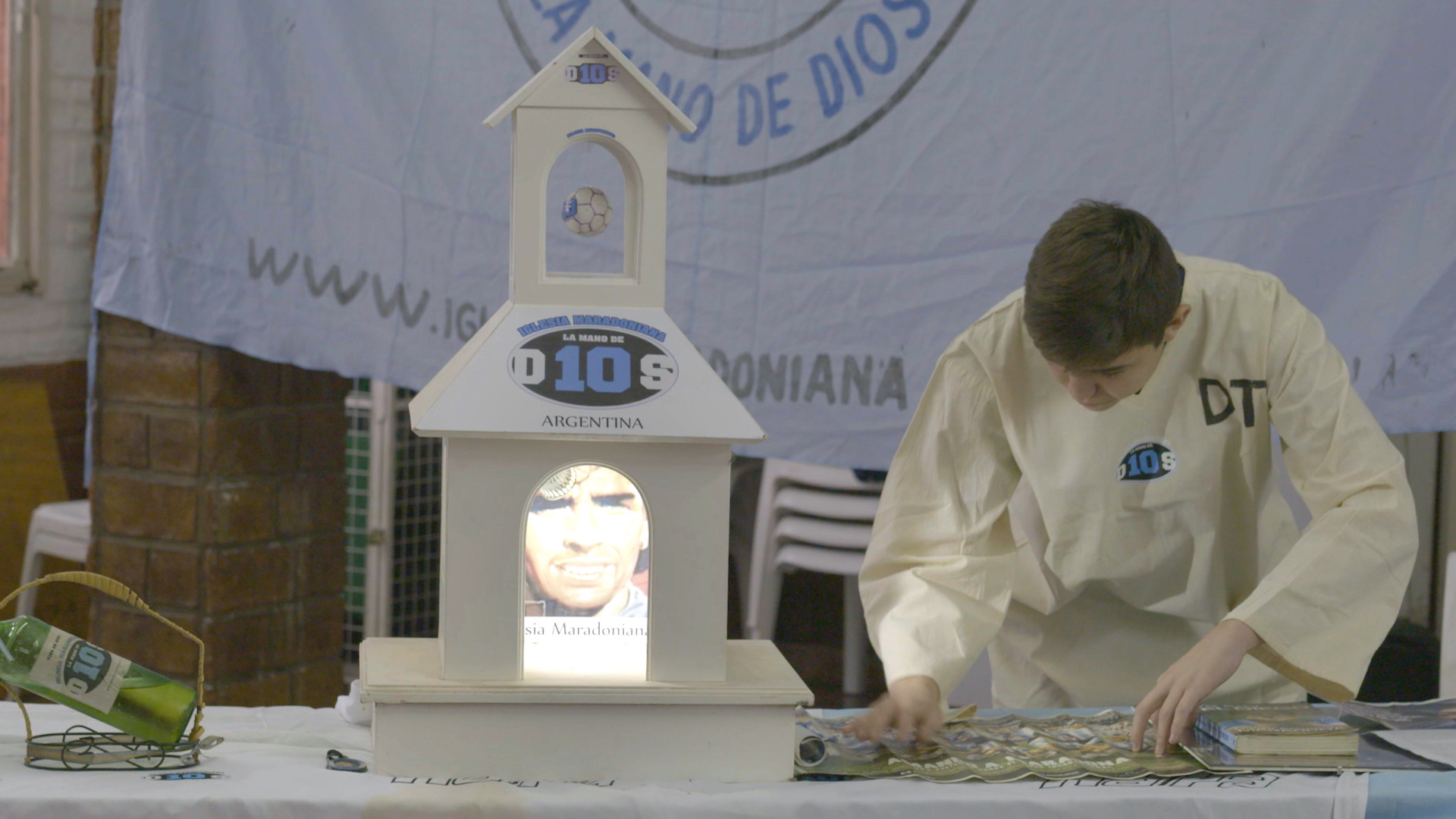
Amez and Verón have meticulously prepared the relics required to celebrate today’s liturgy: posters of Diego at various stages in his 21-year career, a replica of the World Cup trophy, and biographies they consider sacred to the doctrine. A member of the church, Walter Rotundo, brings in his five-year-old twin girls named Mara and Dona. It’s a special day for them: They’re going to be baptized in the Church of Maradona. Like the other present members, both girls are wearing an Argentina jersey with Maradona’s number on the back.
“They should retire that number forever,” says the man standing next to me. He too is preparing to read the Commandments of Diego to the congregation.
“You mean on the Argentinian team?” I ask.
“No,” he replies. “Retire the number generally. Just stop using it.”
Amez and Verón organize masses and promote them on social media, but the get-togethers have become increasingly sporadic. The possible locations where they could host are determined swiftly on the Facebook page. The Maradonians come from miles away, trekking through plains and herds of cattle to celebrate the mass of D10S. But the church has too many members: Everyone wants a bit of Maradona, wants to snack on sausages with the other Maradonian brothers, share stories, and render homage to him.
“It’s getting out of hand,” Verón confessed the night before the twins’ baptism. It’s hard to tell whether the Maradonians take themselves seriously or if everything is a part of some big joke at which Maradona himself is laughing from somewhere in his familiar haunts of Dubai, Moscow, or Caracas.
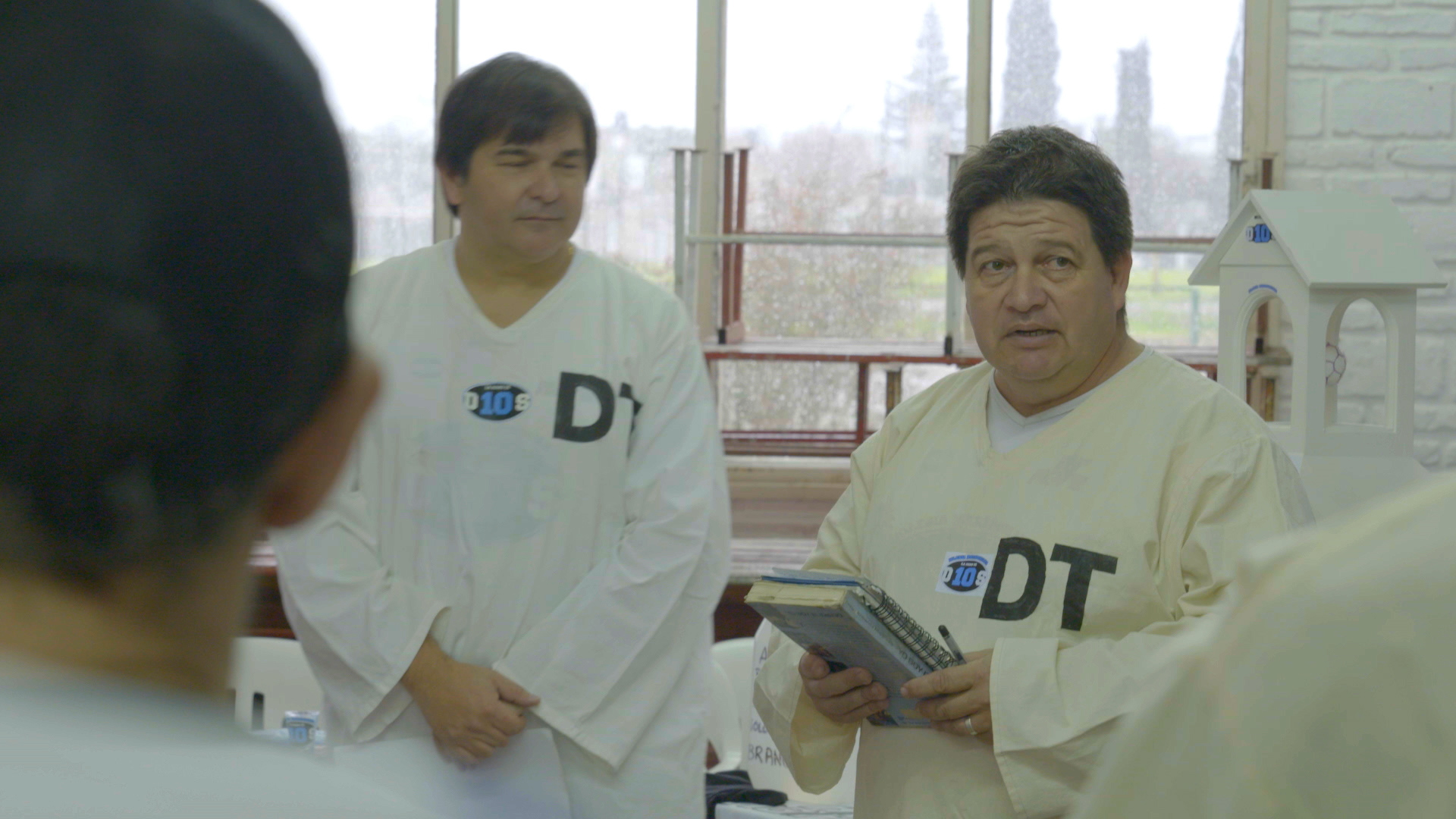
Today’s Maradonian mass doesn’t go into overtime and nobody thinks about penalties. The theatricality of the ceremony ends as soon as we transition another rite, one that is more relaxed but equally important: the grill. Some of the church members take pictures of Mara and Dona, who’ve just been baptized. Each girl is wearing an Argentina team jersey with their name on their respective back—Diego himself sent them from the United Arab Emirates. While Maradona doesn’t attend this church, he understands the fervor that he evokes in his fans.
The girls seem happy. They understand soccer, the mass, and the image of Maradona better than the adults do—it’s all a game, which it is, like anything else. Their father takes it more seriously. As soon as the baptism ends, he proposes to the mother of his daughters. A swarm of blue and white jerseys celebrates the engaged couple with a group hug that you might see in response to a goal scored on a delayed penalty. Some people keep munching on their food, and begin to say their goodbyes as soon as their plates are empty.
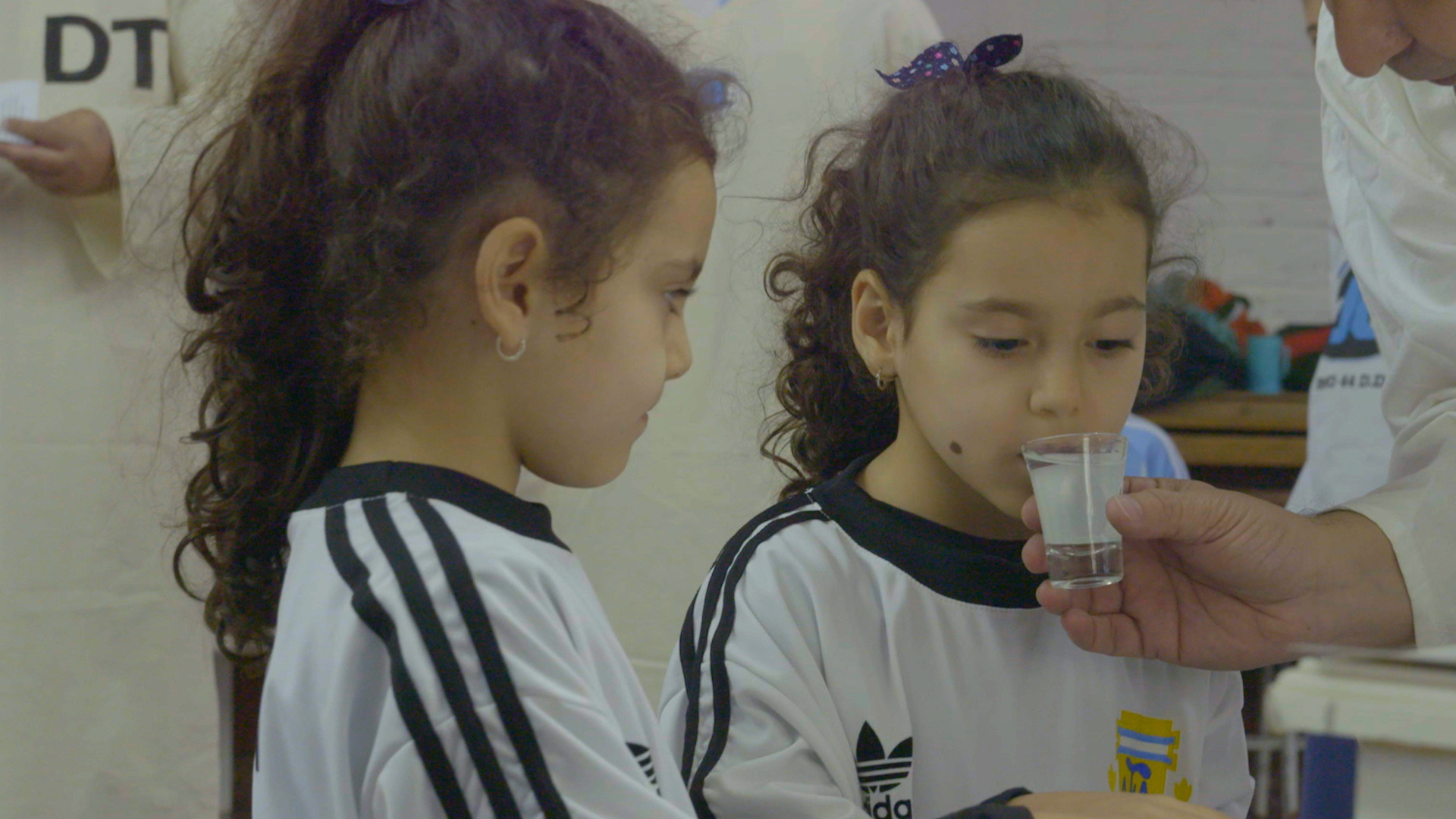
At the end of the event, we remove our jerseys. Now we’re just a few exhausted devotees around a banquet table, flanked by empty beer cans and half-drunk glasses of wine, in the middle of a room that makes us feel small now that all the paraphernalia is gone. The grill has been off for hours and the sun is setting. We keep talking about goals, players, and victories—our shared religion.
Sign up for our newsletter to get the best of VICE delivered to your inbox daily.
This article originally appeared on VICE MX.